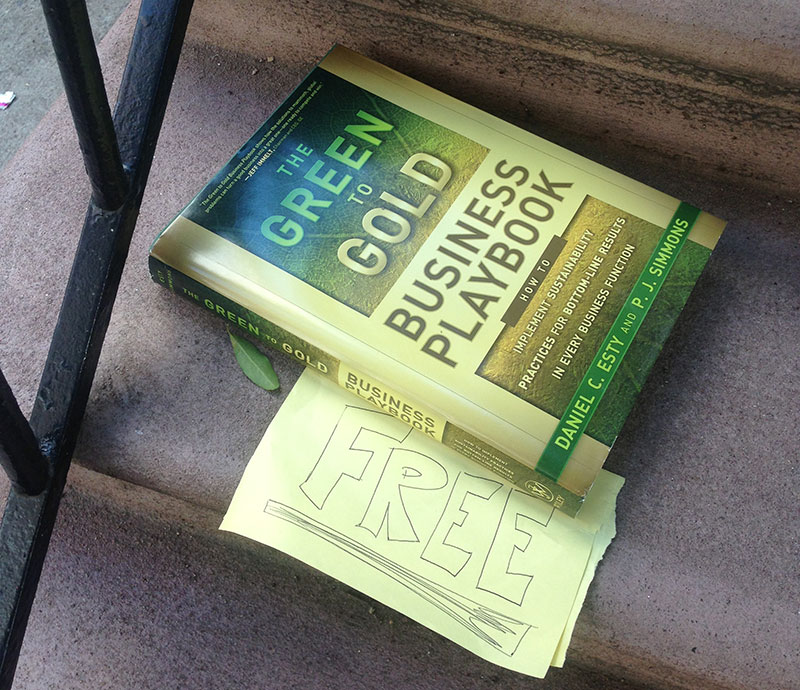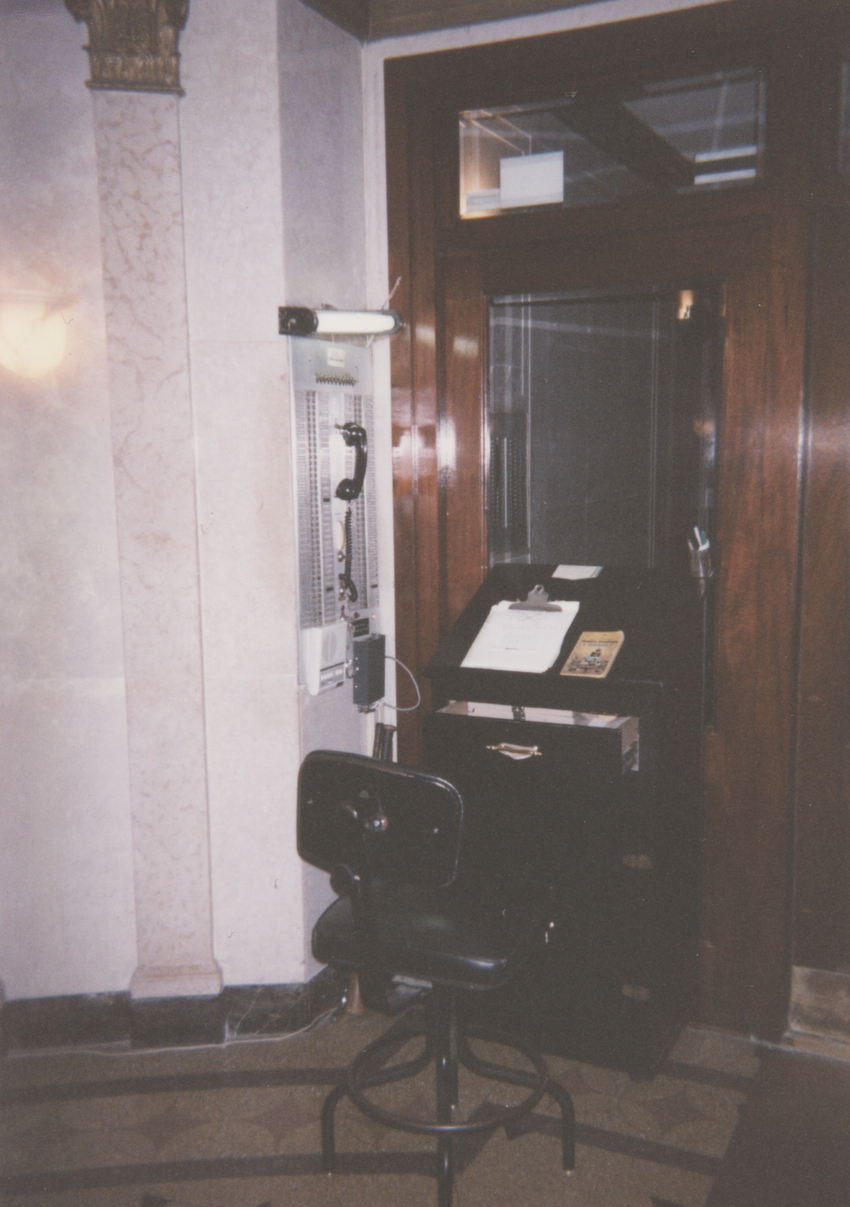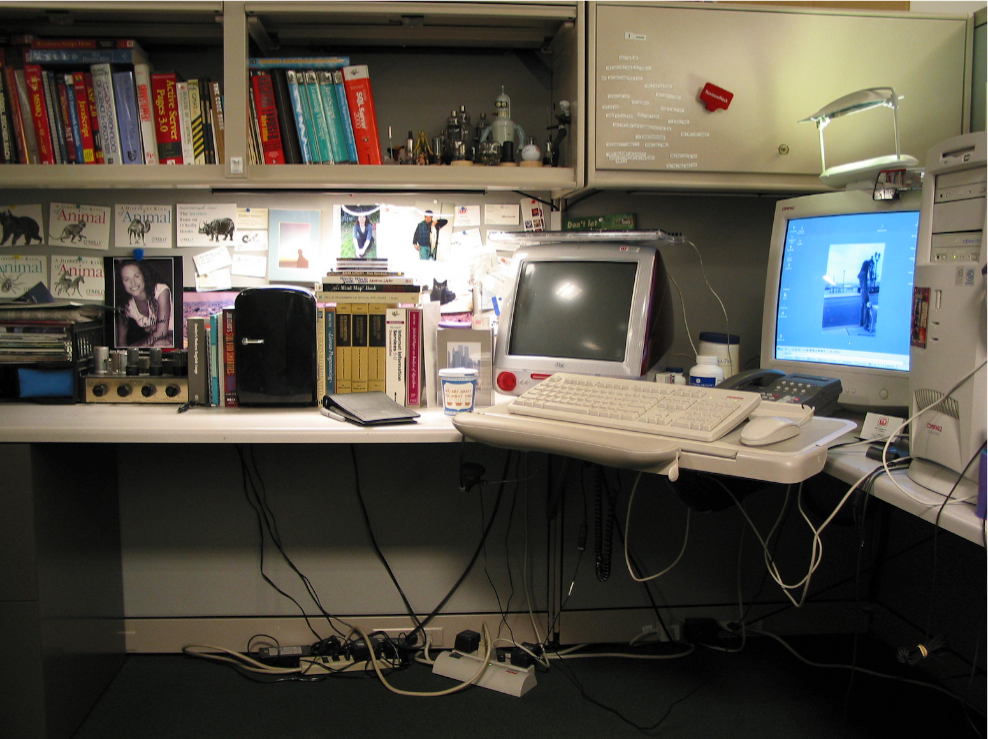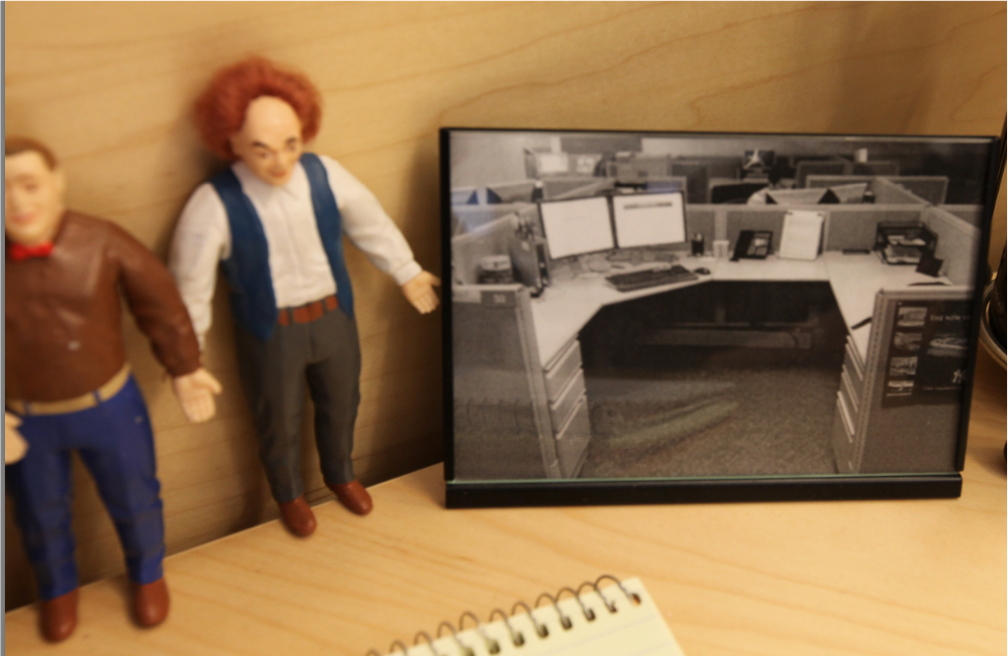Who drew it better — Utamaro or the artist who did Arizona's graphics?

Blogging since 2002
Who drew it better — Utamaro or the artist who did Arizona's graphics?


I don’t know if anyone is still reading this blog, but here’s the latest digital (and prophetic) New Year’s card. This was a good year, and things are looking good for 2015. I’ve lost most of the weight that I gained in the previous 5 years, got a new job, completed a number of interesting projects.
Happy New Year!
When was the last time you got into a vigorous nerdy argument in the comments somewhere? You know, about something that you know little about, but a bit more than someone else? Someone is wrong on the Internet! Someone needs to be taken down a notch. Your opponent slips and slides around some very important point that you’ve made, and you’ve noticed a sizable, but surely not fatal flaw in your arguments. You opponent is guilty of some logical fallacies that you know by name. So are you. Shockingly consensus is nowhere in sight. You know, that kind of an argument?
Well, I willingly walked into one very recently. In the field of (shame, shame) cosmology as it relates to creationism. I was not debating a creationist either, far from it. It was a very intelligent, well-educated proponent of science. Except maybe one that watched a few episodes of those popular cosmological shows fewer than me. I was making a rather obtuse point that cosmology is so confusing that a wooly creationist might actually be less wrong in a ridiculous sounding statement…. blah blah blah. Snooze. My bad. Certainly not a good use of a good chunk of my weekend. But something good came off it. I finally had a small epiphany. These arguments that we weave in are exactly like a powerful trope that was used by late Donald Westlake in his Dortmunder series of books .
All the Dortmunder books have a scene set in O.J. Bar and Grill on Amsterdam Avenue. Besides master thief Dortmunder and his loyal and sometimes disloyal circle of criminals associates we encounter a strange lifeform: some barflies known as “the regulars”. The regulars pass time by having inane arguments with each other. They are extremely ignorant and clueless , but like a stopped clock, they are correct twice a day or so. Not for long, though.
I’ve collected three classic excerpts featuring “the regulars” from my favorite Dortmunder books. I’m pretty sure on some level every single argument that I’ve had on the web went exactly like that.
“What’s the Worst That Could Happen?”
…
“Right,” Dortmunder said, and moved toward the bar, where the regulars were discussing those black lines that’s on everything you buy now that make the cash register go beep.
“It’s a code,” the first regular was saying. “It’s a code and only the cash registers can read it.”
“Why do it in code?” the second regular asked him. “The Code War’s over.”
A third regular now hove about and steamed into the conversation, saying, “What? The Code War? It’s not the Code War, where ya been? It’s the Cold War.”
The second regular was serene with certainty. “Code,” he said. “It was the Code War because they used all those codes to keep the secrets from each other.” With a little pitying chuckle, he said, “Cold War. Why would anybody call a war cold?”
The third regular, just as certain but less serene, said, “Anybody’s been awake the last hundred years knows, it was called the Cold War because it’s always winter in Russia.”
The second regular chuckled again, an irritating sound. “Then how come,” he said, “they eat salad?”
The third regular, derailed, frowned at the second regular and said, “Salad?”
“With Russian dressing.”
Dortmunder leaned on the bar, off to the right of the main conversation, and watched Rollo in the backbar mirror.
…
…
When Dortmunder walked into the OJ Bar & Grill on Amsterdam Avenue at ten that night, the regulars were discussing why the big annual automobile race called the Indy 500 was called the Indy 500. “It’s because,” one regular explained, “they run it on Independence Day.”
Rollo the bartender was nowhere to be seen.
“They do not,” a second regular responded. “Independence Day is the Fourth of July.”
Dortmunder walked over to the bar to see what was what with Rollo.
The first regular reared back and stared at the second regular in aggressive astonishment. ‘WVhat boat did you get off?. The Fourth of July is the fourth of July!”
The duckboards behind the bar were lifted and leaning against the backbar and the trapdoor was open. Dortmunder settled down to wait.
“And the Fourth of July is Independence Day,” the second regular said, with the calm confidence of the well-prepared scholar. “They run the Indy Five Hundred on Memorial Day, if you want to know.”
“They why don’t they call it the Memo Five Hundred?”
“The place where they run it–” started a third regular; but, no. Not a regular at all, or he would not have allowed himself to be interrupted.
Which he was, by the first regular, still as calmly confident as ever, explaining, “The reason they call the Indy the Indy is because they named it in honor of the guy in Ra/ders of the Lost Ark. On account of what a terrific driver he is. Indigo Jones, nickname Indy.”
“You know,” mused a third regular, “it’s only called the Indy Five Hundred this year.” Yes; this is the third regular. “Next year,” he informed the world at large, “it’ll be the Indy Five Hundred and One.”
Everybody paused to think about that.
“It’s called the Indy because—” said the nonregular.
“Are you telling me,” the first regular said to the third regular, “the Indy Five Hundred started in the sixteenth century? Are you sure they had cars then?”
“They used chariots the first few years,” the third regular explained. “That’s where the movie Ben-Hur came from. It’s like the Super Bowl, with the numbers, ex-ex this and ex-ex that. Only they use American numbers. Five hundred. Five hundred and one.” “Indianap–” said the nonregular.
“It isn’t Indigo,” said the second regular.
The first regular reared around to confront this new challenge to his scholarship: “Whatisn’t Indigo?”
‘I’he guy’s name,” said the second regular. “An indigo is a kind of fruit, like an orange or a quincy.”
‘I’hat’s right,” the third regular said. “My first wife made pies.”
The first regular did another half turn on his stool to lower an eyebrow at the third regular. “Indigo pies?”
“And quincy pies. And rubabayga.”
…
When Andy Kelp walked into the OJ Bar & Grill on Amsterdam Avenue at six in the evening, the regulars were discussing the proposition that the new big buildings that had been stuck up over on Broadway, one block to the west, were actually spaceships designed and owned by aliens. “It’s for a zoo,” one regular was suggesting.
“No no no,” a second regular said, “that isn’t what I meant.” So he was apparently the one who’d raised the suggestion in the first place. “What I meant is for the aliens to come here.”
A third regular frowned at that. “Aliens come here? When?”
“Now,” the second regular told him. “They’re here already.”
The third regular looked around the joint and saw Kelp trying to attract the attention of Rollo the bartender, who was methodically rinsing seven hundred million glasses and was off in a world of his own. The regular frowned at Kelp, who frowned back. The regular returned to his friends. “I don’t see no aliens,” he said.
“Yuppies,” the second regular told him. “Where’d you think they came from? Earth?”
“Yuppies?” The third regular was a massive frowner. “How do you figure that?”
“I still say,” said the first regular, “it’s for a zoo.”
“You need a zoo,” the second regular told him. “Turn yourself in.” To the third regular he said, “It’s the yuppies, all right. Here they are all of a sudden all over the place, every one of them the same. Can actual adult human beings live indefinitely on ice cream and cookies? No. And did you ever see what they drink?”
“Foamy stuff,” the third regular said thoughtfully. “And green stuff. And green foamy stuff.”
“Exactly,” the second regular said. “And you notice their shoes?”
The first regular said, dangerously, “Whadaya mean, turn myself in?”
“Not in here,” Rollo said absently. He seemed to look at Kelp, who waved at him, but apparently Rollo’s eyes were not at the moment linked up with his brain; he went on with his glass-rinsing.
Meanwhile, the second regular had ignored the first regular’s interruption, and was saying, “All yuppies, male and female, they all wear those same weird shoes. You know why?”
“Fashion,” the third regular said.
“To a zoo, you mean?” demanded the first regular. “Turn myself in at a zoo? Is that what you mean?”
“Fashion?” echoed the second regular. “How can it be fashion to wear a suit and at the same time these big clunky weird canvas sneakers? How does it work out to be fashion for a woman to put on all kindsa makeup, and fix her hair, and put on a dress and earrings and stuff around her neck, and then put on those sneakers?”
“So what’s your reading on this?” the third regular asked, as the first regular, zoo partisan, stepped slowly and purposefully off his stool and removed his coat.
“Their feet are different,” the second regular explained. “On accounta they’re aliens. Human feet won’t fit into those shoes.”
The first regular took a nineteenth-century pugilistic stance and said, “Put up your dukes.”
“Not in here,” Rollo said calmly, still washing.
“Rollo?” Kelp said, wagging his fingers, but Rollo still wasn’t switched to ordinary reception.
Meantime, the other regulars were gazing upon the pugilist with surprised interest. “And what,” the second regular asked, “is this all about?”
“You say it isn’t a zoo,” the pugilist told him, “you got me to answer to. You make cracks about me and zoos, we’ll see what happens next.”
“Well, wait a minute,” the third regular said. “You got a zoo theory?”
“I have,” the pugilist told him while maintaining his fists-up, wrists-bent, elbows-cocked stance, one foot in front of the other.
“Well, let it fly,” the third regular invited him. “Everybody gets to say their theory.”
“Naturally,” the second regular said. He’d been gazing at those upraised fists with interest but no particular concern.
The pugilist lowered his fists minimally. “Naturally?”
“Rollo,” said Kelp.
“You got an idea that’s better than yuppies,” the second regular told the pugilist, “let’s have it.”
The ex-pugilist lowered his arms. “It is yuppies,” he said. “Only it’s different.”
The other regulars gave him all their attention.
“Okay,” the zoo man said, looking a little self-conscious at being given the respectful hearing he’d been demanding, “the thing is this: you’re right about those new buildings being spaceships.”
“Thank you,” the second regular said with dignity.
“But they’re like roach motels,” the ex-pugilist said. “They attract yuppies. Little tiny rooms, loft beds, no moldings; it’s what they like. See, the aliens, they got these zoos all over the universe, all kindsa creatures, but they never had human beings before, because there weren’t any human beings that could live under zoo conditions. But yuppies do it naturally!”
“Rollo!” insisted Kelp.
“So, what,” asked the third regular, “is your reading of the situation?”
“Once all the buildings are completely rented out,” the ex-pugilist told them, “they take off, like ant farms, they deliver yuppies all over the universe to all the different zoos.”
“I don’t buy it,” the second regular said. “I still buy mine. The yuppies are the aliens. You can tell by their feet.”
“You know, but wait a minute now,” the third regular said. “Botha these theories end at the same place. And I like the place. At the end, the new buildings and all the yuppies are both gone.”
With a surprised look, the second regular said, “That’s true, isn’t it?”
“Spaceship buildings,” agreed the ex-pugilist, “fulla yuppies, gone.”
This idea was so pleasing to everyone that conversation stopped briefly so they could all contemplate this future worldsoon, Lordwhen the yuppies and their warrens would all be away in some other corner of the universe.
Kelp took the opportunity of this silence to say, very loudly, “Well, Rollo, looka this! You got a customer here!”
Instead of a usual blog post I decided to do something akin to a “trail” that Vannevar Bush was talking about in his famous essay. It’s a jumble of quotes and a story all on the subject of happiness and wealth.
My grandfather once told me a story about aspirations in 19th century Russia. Sugar was considered a luxury item back then, and did not come in highly refined granules. Instead it was purchased in the form a sugarloaf, a gigantic cone of pressed sugar. A sugarloaf would be stored in a special box, and pieces of it would be snipped off. These lumps of sugar were not like modern sugarcubes, they were darker and did not dissolve as easily. Those Russians who could afford sugar would usually drink tea “vprikusku” — through a lump of slowly dissolving sugar held on a tongue. It was considered to be more economical than dissolving sugar in tea, which was known as “vnakladku”.
So the story goes like this. A peasant is drinking tea with no sugar. But he dreams: if I were a merchant, I’d drink tea with sugar “vprikusku”. If I were a nobleman, I’d drink tea with sugar “vnakladku”. But if were the czar, I’d make a hole in the sugarloaf and drink tea out of it.
Felix Dennis’ rich/poor scale from “The Narrow Road: A Brief Guide to the Getting of Money”
£1m – £2m The comfortable poor
£3m – £4m The comfortably off
£5m – £4m The comfortably wealthy
£16m – £39m The lesser rich
£40m – £74m The comfortably rich
£75m – £99m The rich
£100m – £199m The seriously rich
£200m – £399m The truly rich
£400m – £999m The filthy rich
Over £1bn The super rich
The famous dialog from Office Space:
Peter Gibbons: What would you do if you had a million dollars?
Lawrence: I’ll tell you what I’d do, man: two chicks at the same time, man.
Peter Gibbons: That’s it? If you had a million dollars, you’d do two chicks at the same time?
Lawrence: Damn straight. I always wanted to do that, man. And I think if I were a millionaire I could hook that up, too; ’cause chicks dig dudes with money.
Peter Gibbons: Well, not all chicks.
Lawrence: Well, the type of chicks that’d double up on a dude like me do.
Peter Gibbons: Good point.
Lawrence: Well, what about you now? What would you do?
Peter Gibbons: Besides two chicks at the same time?
Lawrence: Well, yeah.
Peter Gibbons: Nothing.
Lawrence: Nothing, huh?
Peter Gibbons: I would relax… I would sit on my ass all day… I would do nothing.
Lawrence: Well, you don’t need a million dollars to do nothing, man. Take a look at my cousin: he’s broke, don’t do shit.
There’s a moment in just about every reader’s life. A moment when you get a temptation to pick up and read a self-help book. Well, what if I’ll learn how to win friends and influence people (you do it with positive thinking), study the 7 habits of the highly effective people (most of the habits have to do with positive thinking and buying a nice leather organizer), learn “the Secret” (“the Secret” is positive thinking), get things done (you write down all your brilliant ideas in a whole bunch of folders and buy a really nice label printer) — maybe then I’ll become rich, you think.

Yes, the self-help industry probably created a lot of millionaires. Most of them are the people who sell the books, seminars and organizing tchotchkes. I’ve also heard about one dude who found an obscure Victorian era self-help book, scanned it, replaced all the outdated words in it, turned it into an eBook and made some serious bank selling it on a website.
Maybe there are people who have awoken the giant within and now have a 4 hour work week. I simply don’t know. I’ve met a few billionaires and a many millionaires, and I’ve listened to many of them telling the story of how they became rich. Most of the stories involved luck, very good sales and people skills, perseverance, and hard work. But only twice I’ve heard a self-help book with a preposterous title mentioned by these people. This book did wonders for them. I’ll tell you what this book if you’ll buy my book or send me $100 via PayPal. Well, all right, since you’ve been reading my blog for so long I’ll tell you. That one book is … drumroll … Sams Teach Yourself Perl in 24 Hours. The funny thing is that wealth creation can be accomplished with magic words that look similar to this:
my $dbh = DBI->connect(
"DBI:$driver:$database",
$user, $password,
) or die $DBI::errstr;
Side note: there’s no apostrophe in “Sams” because the company is named after not after somebody named Sam, but after Howard W. Sams, a contemporary of Dale Carnegie.
In any case, the internet is lousy with stories of absolutely ordinary people who became rich after picking up a computer language book. You don’t believe me? Read this one and let me know what you think.
There are two Turkish restaurants near my house. Both are inexpensive, authentic places ran by native Turks. They sell the usual fare: lamb shish kabobs, adana kabobs, cigara boregs, tripe soup, fresh Turkish bread. There’s one thing that is missing from the menu: Turkish coffee.

Photo by vagabondtravels
That’s right. I’ve asked for it a number of times, and I’ve heard numerous other restaurant patrons ask for it only to be told that it’s not on the menu. Recently a friend of mine, also incredulous at this glaring omission, asked our waiter why exactly Turkish coffee is not served there. The waiter, apologetic, explained that they used to serve Turkish coffee in the past, but it encouraged local retirees to take up the valuable table spots while buying a single cup of coffee. He pointed out that they now migrated to the nearby Dunkin’ Donuts, where now you can’t find an empty table.
Interestingly enough, prior to learning the mystery of the missing coffee, me and my friend were talking about certain technological deficiencies which were caused not so much by stupidity, but by near-pure malice. I also told him about my (now over a decade old) theory that I call “Reverse Hanlon’s Razor“. I think “the Turkish coffee syndrome” is a much catchier name.
In looking at CMS design or hosting nightmare, I often remember this passage from Ellen Ullman’s book:
Well, sometimes it is stupidity. But more often than not the problem is not technogenic in nature. Often it’s political or business-driven. It’s not that the restaurant owners don’t know how to make Turkish coffee. The coffee pots (cezve) and finely ground coffee are sold next door. It’s not even that it takes too long to make the coffee (although that might be a part of the reason). It’s just that the rents in my neighborhood are very high and the table space is at premium, and coffee drinkers tend to linger.
An acquaintance of mine spends a lot of money on travel and cameras, more than just about anyone I know. But you won’t find photos of famous landmarks amongst his pictures unless he’ll find a way to take a picture of something that nobody photographs – like a bathroom or a service entrance. His photos will stand the test of time.
Collectors of old photos know this: photographers have a herd mentality. In early photographs portraits are very common, but pictures of anything other than people are rare. Yes, old cameras were bulky and hard to use outside, but it’s still not a good reason: the earliest surviving photo is a view out of a window.
There’s a type of a photo that I despise the most: one of a flower. If you have an expensive camera with a nice lens you can go to a botanical garden and take a hundred gorgeous pictures of pretty plants with a pretty blurred background (coin-a-sewers of this type of photos like to discuss “bokeh” – the quality of the blurred background specific to a lens).
And then there’s one type that I like a lot: pictures of workspaces. My advice to you is to take more of those. Forget flowers, sunsets and landmarks: looking back you’ll enjoy these much more.
Here’s a blurry photo of my doorman’s desk from college years:

And here’s my desk at TV Guide.

A co-worker of mine kept a picture of his old workspace instead of anything else. He could never explain why he did it, but I found it funny enough to take a picture of it. I always kind of wished I had the foresight to keep taking pictures of my desks recursively – which is a great idea, I think.


I cringe a little bit when I hear the word “startup”. This word has several different meanings in modern newspeak. In Silicon Alley (this is what New York’s startup scene was called in 2000) it appears in several typical phrases such as: “well, we can’t afford that – we are a startup” and “we are a startup, but we are very well funded”. This word is basically used either as an excuse for wanting below-market labour or an excuse to flaunt investor-supplied riches. In the first phrase it means that the company has been burning dumb money for at least a few years, in the second – it’s just starting. One “startup” that I worked for (and have fond memories of) began in 1997 and gave up ghost in 2012. UGO was truly the Dick Clark of companies (except not as successful).
Recently I was researching an engineer who designed the Wright 2600 keypunch. An article about him on Tripod (another blast from the past) has a very interesting quote: “After retiring from US Gov., he volunteered for SCORE, the retired executives helping businesses with start up and other problems.” Startup is not a type of a business! It’s a problem that businesses have!
The term “serial entrepreneur” has also acquired a thick patina of sleaze. The thing is, entrepreneurs are not really like flying aces (I think I read somewhere that most military pilots are either aces who shoot down 5 or more planes or the ones who are shot down). No. You only need to take a look at Jerry Kaplan, who wrote “Startup: A Silicon Valley Adventure” and probably set some kind of a record in running companies that don’t make it. A large percentage of startup money is made through sales to larger, lumbering companies. Was broadcast.com a great deal? Nobody remembers it when watching its founder wearing relaxed fit shoes. There certainly a lot of money out there chasing some not very viable ideas. Unfortunately the startups of yesterday and today are either huge failures or huge successes. Or both (but not for everybody).
Luckily these days startup costs are at all time lows. To create a huge failure of a company you need a lot of money. On the other hand, to barely succeed all you need is some pocket change. Forget about Y Combinator. The Pinboard Investment Co-Prosperity Cloud will “barely invest” and try to help you to “barely succeed” – in other words to encourage you to build a business that realistically aims to be profitable. Forget “go big or go home”. Just try to honestly to build a business. Screw freemium. Forget about “incubators”. All you need is $37. And The Pinboard Investment Co-Prosperity Cloud will maybe give it to you. If you’ll get a rejection – dig deep.
I’ve lived in NYC for a while. I don’t want to go all “I’ve seen attack ships on fire off the shoulder of Orion”, but I have seen ships on fire. I’ve seen shooting – the movie variety and the regular kind, two hurricanes (one weak), an earthquake (not a strong one), a major blackout, and 9-11.
I always wanted to own a house in Breezy Point. I also always wanted to work in the Twin Towers. In hindsight, it’s probably good that I never achieved these things. On the other hand I spent 5 years working in the rebuilt WTC 7. I hope Breezy Point will be rebuilt soon too.